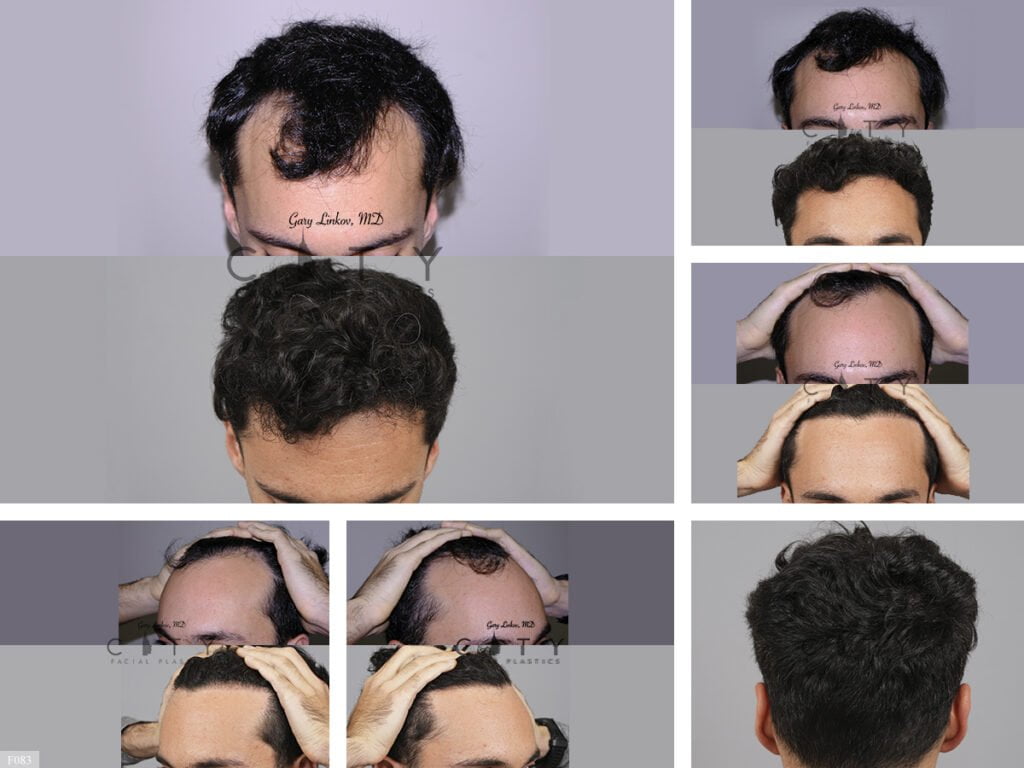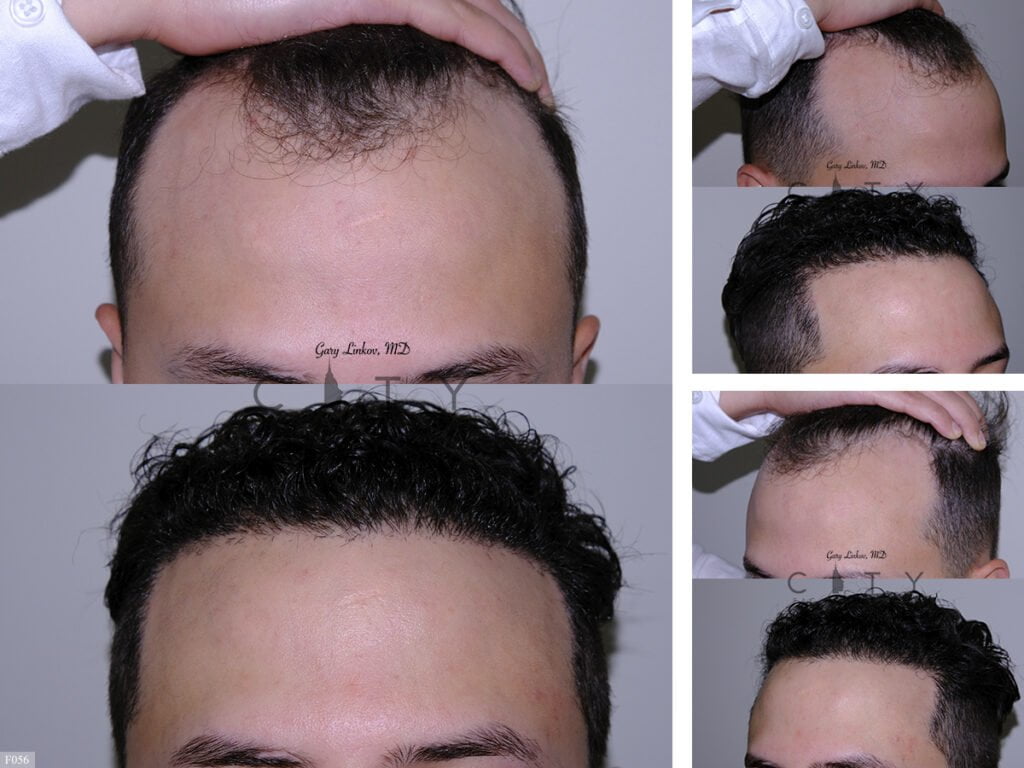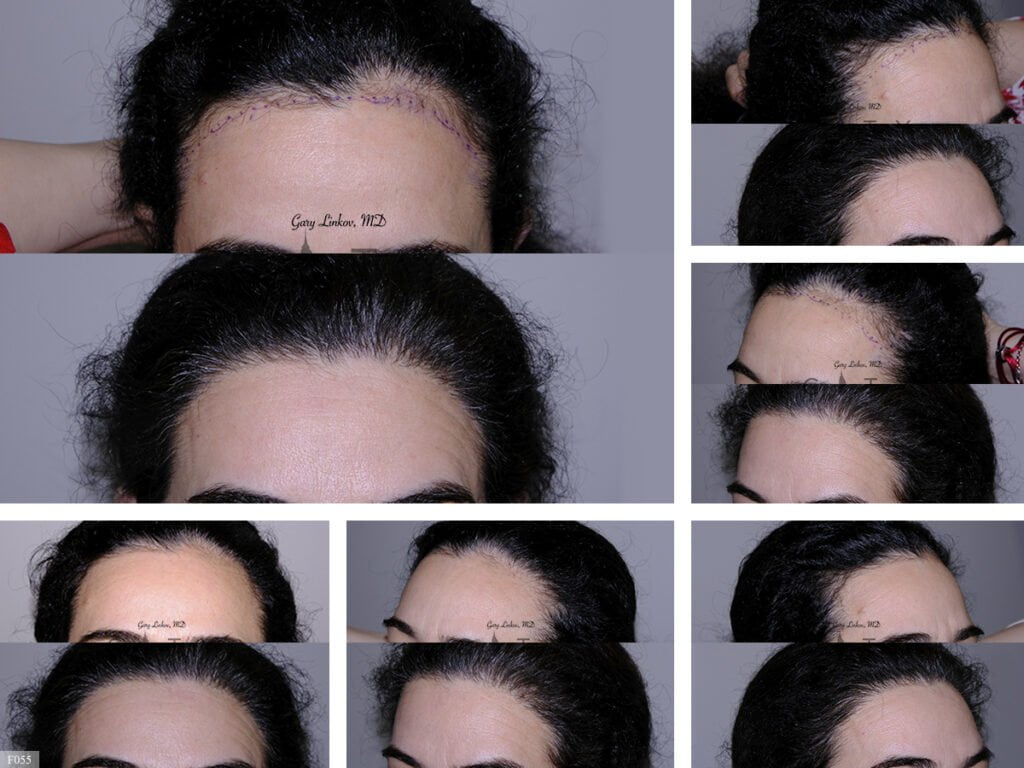Telogen Effluvium
When you find your hair thinning and beginning to show your scalp through your hairstyle, get the right diagnosis from an experienced hair restoration doctor, like the one you find in Manhattan at Linkov Hair Surgery. If you find that you need telogen effluvium treatment, there’s a good chance that a simple solution stops the continued thinning. Treatments for telogen effluvium are plentiful and cost-effective when you call this trusted hair loss practice. At the same time, you find the most caring doctor if you require chronic telogen effluvium treatment.
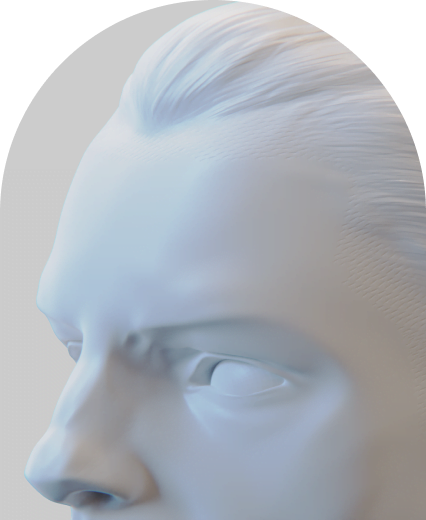
What Is Telogen Effluvium?
Telogen effluvium is a disorder characterized by non-scarring shedding of your hair. One of the most common forms of hair loss, it typically affects more women than men. In many cases, it’s triggered by a stressor, trauma or change to your body. There are several options for telogen effluvium treatment, but it’s a temporary form of hair loss; hair typically grows back after a few months.
To discover if your hair loss is caused by telogen effluvium, find a doctor who specializes in conditions that cause hair loss. At Linkov Hair Surgery, you’ll find the top hair loss doctor in Midtown Manhattan who can provide telogen effluvium treatments, as well as treatments for other hair loss conditions, at the best price.

What Are the Symptoms of Telogen Effluvium?
During the natural hair cycle, it’s normal to shed up to 100 hairs each day. When you have telogen effluvium, you may shed three times as many hairs. Symptoms of this condition include:
- Rapid hair loss
- More hair than usual falling out when you wash, comb or brush it
- Noticing an excessive amount of hair in the drain or on your pillow
If you have this condition, you won’t lose all your hair, but large amounts may fall out, making your hair seem noticeably thinner. Some people experience trichodynia, which is a painful itching or burning sensation of the scalp.
Telogen effluvium can be acute or chronic. The acute type is characterized by hair shedding that lasts less than six months. An example is telogen gravidarum, a condition triggered by hormonal changes a few months after childbirth. Chronic telogen effluvium treatment is necessary when shedding of your hair lasts longer than six months.
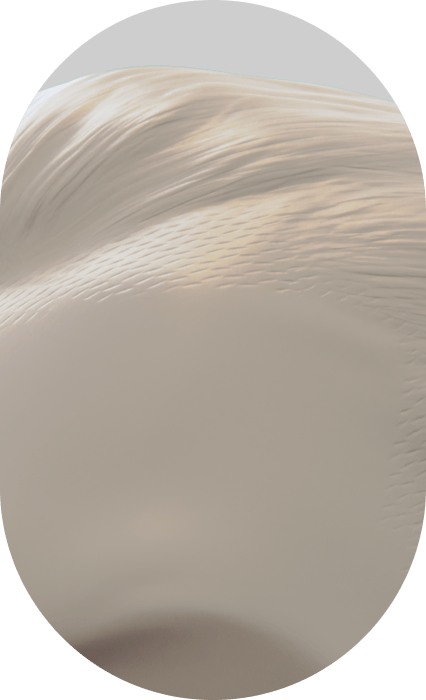
What Causes Telogen Effluvium?
Telogen effluvium is triggered by a disturbance of the telogen phase of hair growth. Hair growth goes through three phases:
-
Anagen phase
This growth phase can last up to four years. Most of your hair follicles are in this phase at any given time.
-
Catagen phase
In this transitional phase, your hair has stopped growing, but hasn’t fallen out.
-
Telogen phase
This is the resting phase. As hairs shed, the growth cycle begins again. A disturbance of this phase delays the active growth phase.
In telogen effluvium, an abnormally large number of hair follicles enter the telogen cycle at the same time. There are many possible causes for this condition, including:
Severe psychological stress. When a stressful life event occurs, it can cause hair to fall out, usually within about three months of the incident.
Physical stress When your body goes through extreme physiological stress, such as childbirth or surgery, it can trigger telogen effluvium.
Illness Severe infections and high fevers can trigger temporary hair loss.
Medications A variety of medications — such as antidepressants, anticonvulsants, birth control pills, beta blockers and ACE inhibitors — can trigger this condition. Even changes in the dosage amount can have this effect.
Hormonal imbalance Changes in hormone levels, such a thyroid imbalance or hormone fluctuations during pregnancy or menopause, can affect your hair’s growth cycle.
Dietary problems A poor diet can lead to health problems, including hair loss, particularly if you have a vitamin D deficiency or an inadequate amount of protein, iron or zinc. Sudden weight loss or drastic calorie restriction can also be a trigger.
Medical conditions Some chronic health conditions may cause hair loss, such as lupus, anemia, diabetes and polycystic ovary syndrome.
In some cases, the cause of the condition is unknown. The risk of developing telogen effluvium without an identifiable cause is highest in women between the ages of 30 and 60. Whether your NYC hair restoration specialist finds a cause or not, telogen effluvium treatments are available to get you through the hair loss.
How Does Telogen Effluvium Differ from Other Types of Hair Loss?
Hair loss has many possible causes. It’s sometimes related to illness or aging. Through blood tests and a thorough medical and family history, your NYC doctor explores every possible cause of your thinning hair, which may include:
- Androgenetic alopecia, a hereditary condition that includes male pattern baldness and female pattern hair loss
- Anagen effluvium, that’s triggered by chemicals that poison your hair follicles, such as chemotherapy
- Alopecia areata, an autoimmune condition in which the body turns on itself and attacks hair follicles
- Traction alopecia, which occurs when you wear hairstyles for a long time that place enormous amounts of stress on your hair, like cornrows or tight ponytails
Compared to other types of hair loss, hair loss from telogen effluvium is rapid. Hair loss from androgenetic alopecia is gradual, and in alopecia areata, hair falls out in small patches. Hereditary hair loss is permanent while telogen effluvium is temporary.
What’s the Best Treatment for Telogen Effluvium?
Even though telogen effluvium is a temporary condition, you’re still affected by the symptoms of hair loss. It can drastically lower your self-esteem and cause anxiety. Acute telogen effluvium corrects itself within a few months and doesn’t usually require permanent treatment for telogen effluvium; instead, it responds better to temporary solutions.
If you’ve identified a vitamin deficiency or hormonal imbalance or if the condition developed as a reaction to a medication, these triggers can be corrected. Other chronic telogen effluvium treatment options include:
- Corticosteroids Topical corticosteroids reduce the amount of hair being lost and soothes your scalp from itching or discomfort.
- Minoxidil This is an over-the-counter medication sold as foam or liquid that slows hair loss and stimulates regrowth.
- Hair replacement systems Wigs, hairpieces and toupees cover thinning hair temporarily if you’re feeling self-conscious. They’re made with synthetic or human hair, blended with your hair to look undetectable. Your New York hair restoration specialist recommends the best type for your needs.
Another option for temporary hair loss is to wear hats or change your hairstyle until your hair grows back. With a temporary condition, you’re not a good candidate for a hair transplant, which is a permanent surgical solution.
Visit an experienced doctor in the field of hair loss to determine the reason you’re losing hair and find the hair loss treatment that’s best for you. In New York City, contact Linkov Hair Surgery, where they use the most up-to-date tools and techniques. Schedule a consultation today.
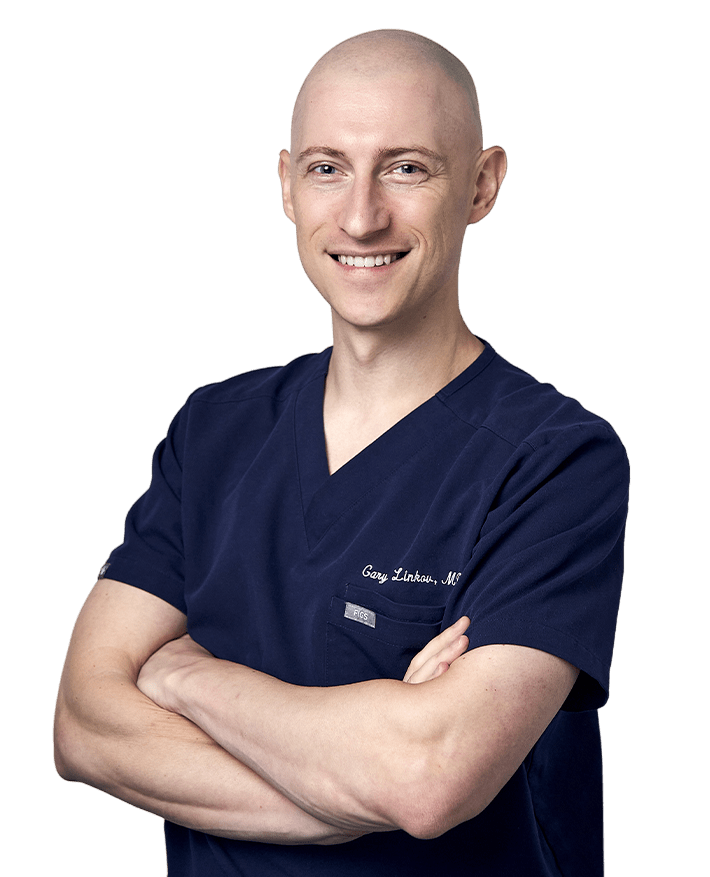
Dr. Gary Linkov is an experienced Ivy League-educated hair transplant surgeon. Having suffered from hair loss himself, he treats his patients with compassion using a multi-disciplinary approach based on the latest hair regrowth methodologies and technologies.
He has authored numerous peer-reviewed articles and book chapters, contributing to the field. Dr. Linkov’s expertise in hair transplant surgery has earned him recognition and made him a sought-after physician. He was featured on the Dr. Oz Show for his needleless PRP hair restoration procedure. USA Today ranks him among the top three plastic surgeons in the United States for reconstruction and natural-looking results.
Publications More about Dr. LinkovLinkov Hair Surgery
150 E 56th St, #1A
New York, NY 10022
(212) 970-9404


